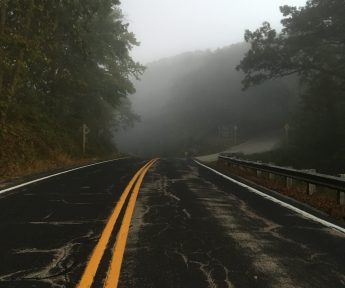I was listening to Krista Tippett interview Brene Brown regarding her new book, Braving the Wilderness, last Sunday and it reminded me of a conversation thread that Katherine started on our D2L discussion for Parker Palmer and Paulo Freire. Katherine wrote,
“In the video, Palmer talks about how there are people these days who are choosing to not wear a mask and choosing to not play the game and their life is more fulfilling and they are around people who they want to be around. How do we know if we are wearing a mask or not if we have become so accustom to this “new person” we created to be out in public?”
Lauren J. responded, “This is interesting to think about but deep down I think we all know who and what we want to be. Sometimes it is easy to get sucked into other habits and not being ourselves. But most of the time I think we still know who we are and bounce back.”
Brene Brown speaks to this idea of wearing masks instead of being our authentic/genuine self. What she researches as a social scientist has a lot to teach us about how we might compose our lives in such as way that creates not only a more meaningful individual life, but a better society.
Brown asked elementary school kids what the difference is between “fitting in” and “belonging.” Fitting in, they said, is “when you want to be a part of something.” Belonging is “when others want you.” One child went on to say that not belonging at school or with other kids is really hard, but not fitting in at home is THE WORST. Brown continued to do research for several years and found that MANY people feel they don’t belong in their own families and this prompted her to define some characteristics of “true belonging.”
She defines true belonging as:
“the deeply held belief we are inextricably connected to one another by something greater than ourselves…and that thing greater than us is rooted in compassion and love.”
Fitting in is just following the norms and wearing a mask; belonging is that deep sense of connection.
Going back to Lauren’s and Katherine’s posts, I think we DO know when we’re not being ourselves because we don’t feel that sense of connection to the people we’re with or the things we are doing. And that connection isn’t about political beliefs or shared blood, it about our capacity to see our shared humanity.
There is an interesting connection between Brown’s ideas and Doty’s ideas about tribalism. Brene Brown and Krista Tippett talked about how we are “sorted” in our society more than ever, we’re often living in “ideological bunkers” (Republicans/Democrats, for example) and nine times out of ten the only thing we have in common with the group we supposedly belong to is hating or disliking the same people. This is “common enemy intimacy” and it’s parallel to Doty’s remarks about tribalism. It brings out the worst in us. It’s counterfeit belonging because you can’t genuinely connect with people through hatred.
Brown says that we often have to stand up and be the lone person in a crowd to have true belonging. This is paradoxical and seems counter-intuitive. If you go against your friends or your family and say what you really believe from a place of human connection it would seem to make you an outsider. But Brown’s research shows different results. Those people who are able to stand up for humanity/human values do feel a more genuine sense of belonging because they are connected via something greater than themselves. She does offer a caveat: that standing alone is the not same as the current climate of “stand offs.” Again, there are connections here to Doty and he kind of empathy that he suggests is at the heart of our humanity, but also something that we have to work on developing because of the impulse of the primitive brain to turn to tribalism.
Brown gave a number of interesting tangible things we can do to find more common ground where we can be our genuine selves and find a since of true belonging. She says Rule number one: “People are hard to hate standing up close, move in.” Rule number two, “Speak truth to bullshit and be civil.” I don’t believe she ever mentioned Rule 3, but Rule 4 was “Seek out collective joy and collective pain,” like when people come together after a tragedy like the recent Florida school shooting. Much of this is written in detail in her new book, Braving the Wilderness. If you have a chance, check out the interview.
In terms of what makes us human, or what can make us more human, I think a big dose of authentic empathy would go a long way to being our authentic selves. By that I mean the kind written about in Harper Lee’s To Kill a Mockingbird: you have to walk in another person’s shoes to truly understand where they are coming from. This is really different from what I call Bomerang Empathy: This is when you look at someone else’s life and actions and determine based on your life what you would have done in their position—it all comes back to YOU and a kind of self-centeredness. The first kind of empathy is about that greater dimension of ourselves. The second one is about the ego, which David Foster Wallace will have a great deal to teach us next week.
When I think about how I want to compose my life, how I want to put it together, I want more genuine empathy, I want to stand up for what is right without engaging in tribalism (us vs. them) by trying to understand how people who share different beliefs from me arrived at the position they have in life. Maybe then we can create the kind of true dialogue that Paulo Freire talks about in his book.
